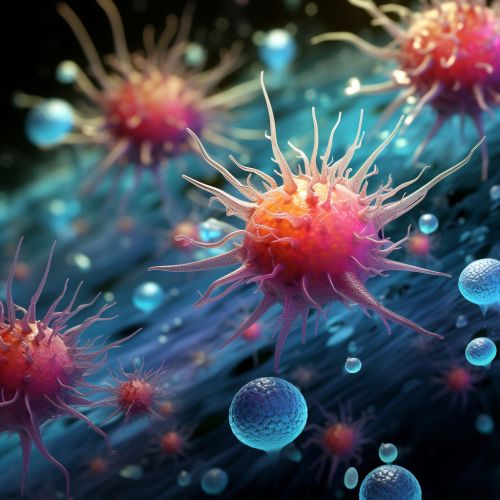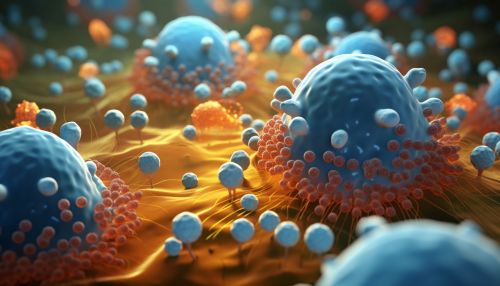Immune system
Overview
The immune system is a complex network of cells, tissues, and organs that work together to defend the body against harmful invaders such as pathogens, including bacteria, viruses, and fungi. It is an essential component of human health, playing a vital role in preventing infections and diseases.


Components of the Immune System
The immune system consists of various components, each with a specific function in the body's defense mechanism. These include:
- White blood cells: These are the primary cells of the immune system, responsible for identifying and eliminating pathogens. They are produced in the bone marrow and are found throughout the body.
- Antibodies: These are proteins produced by the immune system in response to an infection. They bind to specific antigens on the surface of pathogens, marking them for destruction.
- Lymphatic system: This system is a network of vessels and nodes that transport and filter lymph fluid containing white blood cells.
- Spleen: The spleen filters the blood, removing old or damaged blood cells and producing white blood cells.
- Thymus: This organ is where T-cells mature. T-cells are a type of white blood cell that plays a critical role in the immune response.
Function of the Immune System
The immune system functions to protect the body from harmful invaders. It does this through a series of steps known as the immune response.
- Recognition: The immune system recognizes foreign substances (antigens) on the surface of pathogens.
- Activation: Upon recognition, the immune system activates the appropriate immune cells to respond to the threat.
- Response: The immune cells respond by producing antibodies that bind to the antigens, marking the pathogen for destruction.
- Elimination: The immune cells then destroy the pathogen, either by engulfing it or by releasing chemicals that kill it.
- Memory: After the pathogen has been eliminated, the immune system 'remembers' the antigen. If the same pathogen invades again, the immune system can respond more quickly and effectively.
Disorders of the Immune System
Disorders of the immune system can lead to various health problems. These include:
- Autoimmune diseases: These occur when the immune system mistakenly attacks the body's own cells. Examples include rheumatoid arthritis, multiple sclerosis, and type 1 diabetes.
- Immunodeficiencies: These are conditions in which the immune system's ability to fight off infections is compromised or entirely absent. They can be either congenital (present at birth) or acquired (developed later in life).
- Allergies: These are hypersensitive immune responses to substances that are generally harmless, such as pollen or certain foods.
Immune System and Aging
As individuals age, their immune system undergoes changes that can lead to decreased immune function, a state known as immunosenescence. This can result in an increased susceptibility to infections, a decreased response to vaccination, and an increased risk of autoimmune diseases.
